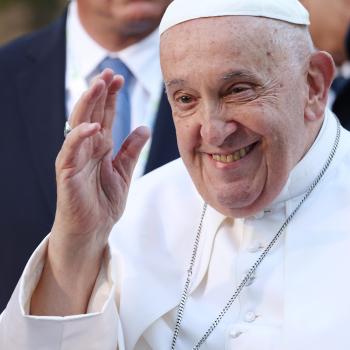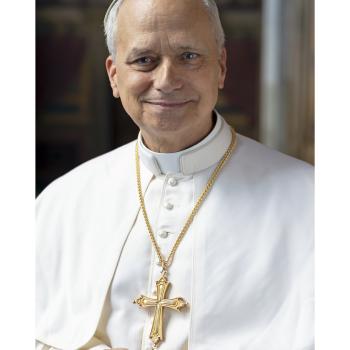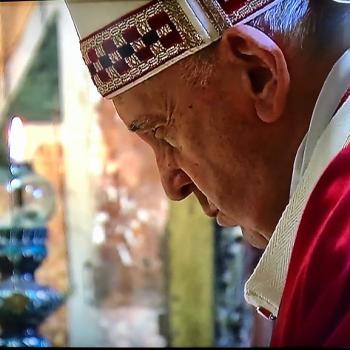There are theologically problematic elements of The Fellowship, and as a sociologist they are the most elusive and provocative group that I find in the evangelical space. Yet the data do not support these conspiratorial claims. Some of the books out there are written by masters of the ellipsis. You bring up one thing, and then another, and you suggest there's a causal relationship. The only problem is that if you do your homework you find that there is no causal relationship.
There are many implications that The Fellowship's involvement with seedy dictators in Africa is unseemly. How can people who supposedly follow Jesus be involved with these kinds of terrible people? But, first, The Fellowship has relationships with pretty much every world leader, good and bad -- just as the State Department does. They function as an underground State Department. The State Department even asks them for help with backdoor diplomacy, where we don't have official relationships. We rely on that diplomacy.
Second, I do believe there are times when The Fellowship ought to have a more prophetic word to these world leaders. But I think The Fellowship has discerned that you cannot be the prophet and the priest, and they have chosen to be the priest and not the prophet. They certainly have done a very good job at the priestly level in that they reach very high officials.
Just yesterday I interviewed Bud McFarlane, and his faith really came alive through The Fellowship. Here I am talking to a person who was National Security Advisor under Reagan, who has a breakdown and his life is put back together through The Fellowship. He is, to this day, twenty years later, still involved with a Fellowship Bible study. He just got back from a diplomatic mission to Darfur, using relationships he developed through The Fellowship, in ways that are informally sanctioned by the high levels of the Obama White House.
He told me of two regional wars between African nations that were averted because of meetings that took place at the Cedars [one of the properties of The Fellowship]. There is compelling data that show how The Fellowship, when they had relationships with one good leader and one dictator, brought them together and averted a war. That happened twice, once in the 1970s and once in the 1980s. And Bud told me that that same kind of thing is happening today, and he gave me examples. The problem is that that kind of thing does not get reported. Nobody will go on the record.
So I have very mixed feelings about The Fellowship. On the one hand they shoot themselves in the foot with their references to Mao and Stalin. On the other hand there is pretty persuasive data that they have been a force for good in international issues. Have they abetted adulterous relationships because they have not called some of these Congressmen to account? Absolutely. But I don't know how you do that. Even if you're living on C Street, these Congressmen are not deeply enmeshed in The Fellowship environment. It seems to me, from a Christian perspective, that it's hard to have an accountable relationship where you say, "It appears that you're cheating on your wife." We don't do that in our churches. So I can't imagine doing that with Congressmen you don't have a close relationship with.
Sometimes evangelicals seem to approach the political sphere with a sort of theology of glory, as though the life of the Christian is about gaining power and making the world a more Christian place. Where does the theology of the cross fit in here? How do evangelical political leaders square their lives of power and affluence with the call of Christ to sacrifice everything and take up the cross?
I interviewed Asa Hutchinson. He had been a Congressman from Arkansas. He was one of those leading the charge in the Clinton impeachment trial, so he's not well-liked among Democrats. But I have to say that he was one of the more thoughtful people I interviewed. We talked about the requirement of self-promotion, and whether that runs counter to the very notion of being a follower of Christ. He had a quote on his desk from Martin Luther:
The very ablest youth should be reserved and educated not for the office of preaching, but for government. Because in preaching the Holy Spirit does it all. Whereas in government, one must exercise reason in the shadowy realms where ambiguity and uncertainty are the order of the day.
It struck me because I felt like it reflected a degree of thoughtful engagement that I just did not find among a lot of people in politics. So this notion of how do you reconcile the self-promotion required in politics with the call to deny oneself and live a humble, sacrificial life -- I asked Jimmy Carter that question, and he really did not have a theologically rich explanation.
Many say the sense of calling trumps that sense of abasement. Or they'll say that politics is one of the most humbling enterprises, where you have the victories alongside the defeats and criticisms. But I don't think there's a lot of deep reflection on what it means to take up one's cross in the professional sphere when the very role is to try to magnify and glorify and amplify the power and the opportunities that might come your way as political leaders. I would say that by and large most Christians whom I interview in politics are not that thoughtful and not that theologically rich in understanding the vagaries of that issue.




